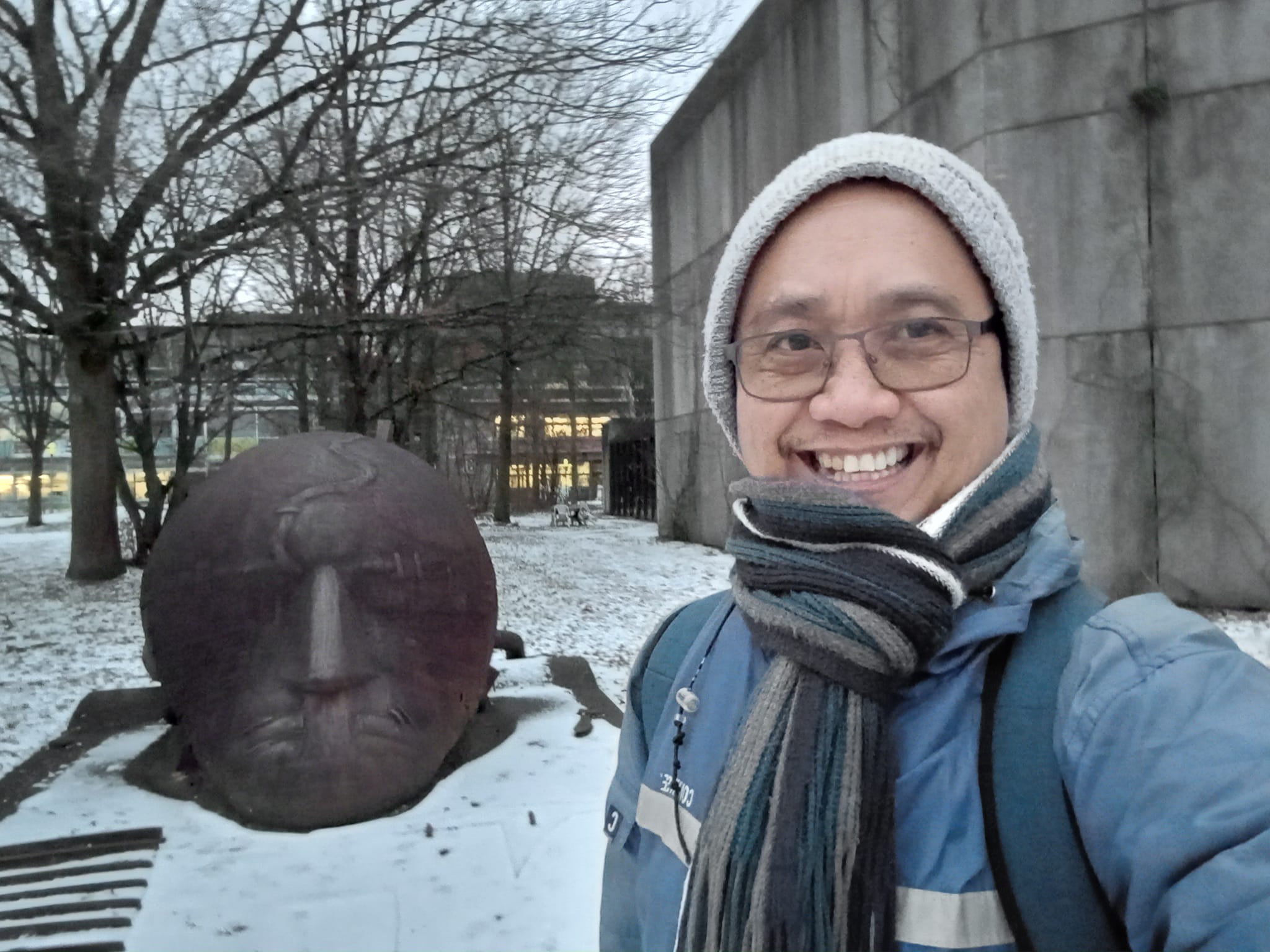Meet the Grantee: Professor Anthony Halog
Analyzing the Circular Economy of the Metal and Mineral Resources for Large-Scale Implementation of Green Hydrogen Technology
Two weeks of German winter vs Australian summer? Professor Anthony Halog from University of Queensland, Australia really enjoyed them, especially connecting with researchers from different areas at UBT and of course his host Professor Christoph Helbig (Ecological Resource Technology) to further investigate green hydrogen.

If you had to explain the research project of your Short Term Grant to the person you metin the elevator, how would you describe it?
Anthony Halog: My project aims to initiate collaborations with leading researchers at the University of Bayreuth for the purpose of developing a holistic model and analysing the upscaling of green hydrogen supply chain. For this work, we need to consider competing environmental-social-economic priorities, particularly reducing environmental emissions/resource requirements while continually improving the economy and creating new value-adding products/markets to generate jobs in the society.
What does international research mobility in today's world mean to you?
AH: Personally, international research mobility is very important to pursue research collaborations, particularly addressing our grand sustainability challenges (e.g. climate change mitigation, energy and food security, circular economy, bioeconomy, etc.). It is also critically relevant in training the next generation of scientists, engineering economists, policy makers and business leader in order to expose them to different ideas and perspectives in other countries. However, this requires funding support so that this kind of mobility programmes can sustain and flourish.
What was your personal experience during your stay?
AH: Personally, I have enjoyed my stay at the University of Bayreuth, including experiencing again winter and snow in Bayreuth. I like that there's a group of academics/researchers (both established and emerging) here working in industrial ecology/ecological resource technology, green hydrogen, batteries, energy storage, and circular economy. I like that there's a monthly Stammtisch in the Faculty of Engineering. I also love travelling within Bavaria during weekends using Bayern Ticket. I visited Bamberg, Würzburg, Passau, and Rothenburg ob der Tauber.
What were your expectations when you applied for the Grant?
Did you have specific goals in mind, something you were hoping to achieve?
AH: My specific goals/expectations are to initiate collaboration with Prof. Christoph Helbig and identify other academics and emerging scholars in green hydrogen, electric vehicle battery and circular economy, with a life cycle and systems perspective at the University of Bayreuth.
Have you noticed any differences or similarities between UBT and your home university?
AH: One difference is the number of international students at the University of Queensland (UQ) which is almost 50% of the student population while at UBT, it looks like less than 10%. Though both UBT and UQ know the criticality of green hydrogen for climate change mitigation and net zero economy, there are differences in priorities and perspectives between the two countries. Research in green hydrogen in Bayreuth or Germany (as a whole) is pretty advanced compared to Australia.
The Grantee
Professor Anthony Halog has worked at leading research institutes around the world. He is a transdisciplinary, holonic systems thinker, speaker, scientist, and engineer. He is enthusiastic about pursuing leapfrogging, exponential, life cycle, systemic, and transformative changes/solutions to our global sustainability challenges. These changes/solutions are beyond business-as-usual, linear, myopic, and reductionist/silo mentality. His research work focuses on the sustainability of human-nature complexity through understanding the nexus of material and energy systems. He has conducted and supervised high-impact research projects on sustainability assessment and life cycle analysis for energy and industrial systems. One of his recent successful grants is a 4-year project of $406,569 funded by the International Climate Change Engagement Program from Australia's Department of Foreign Affairs and Trade (DFAT) on "Optimization of Refuse-Derived Fuels to Decarbonize Electricity Sectors and Achieve Nationally Determined Contribution (NDC) Targets in Indonesia", with a total project value of $1.6 Million. He has published more than 130 peer-refereed publications.
